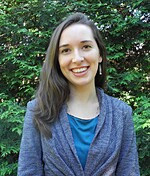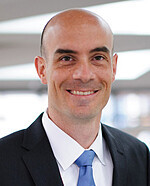“Political leaders have long invoked the grandchildren of tomorrow when speaking of the need to protect the environment. We are those grandchildren, and we are here now.” – Anna Young, Augusta Williams, Yasamina McBride
How are American lives and livelihoods affected by political polarization and inaction on issues such as climate change, and who in our communities are more vulnerable? How does the younger generation view the urgent environmental health issues of our day and their role in encouraging action? What are strategies for effectively communicating the issues to the general public as well as decision makers, and how do we move forward to protect health and environmental quality?
On May 30, 2017 at 10am Pacific/1pm Eastern we heard three graduate students from the Harvard T.H. Chan School of Public Health and the University of Houston speak about their essay, We Can't Delay Action on Environmental Public Health, published by Scientific American on May 1st. Signed by students from over twenty universities, this powerful essay presents the younger generation’s perspective on current environmental health issues and is a clarion call to political action. Anna Young, Augusta Williams, and Yasamina McBride discussed the questions above, their impetus for writing the essay, and what they hope to achieve. They were joined by Dr. Joseph Allen, Assistant Professor at the Harvard T.H. Chan School of Public Health and Director of the Healthy Buildings program at the Harvard Center for Health and the Global Environment.
Featured Speakers
 Anna Young is pursuing a Master of Science degree in Environmental Health at the Harvard T.H. Chan School of Public Health. Her current research focuses on exposures of nail salon workers to toxic plasticizers and heavy metals from nail polish products. She is advised by Dr. Joseph Allen, Director of the Healthy Buildings Program at HSPH. She also holds a BA in Environmental Studies and in Computer Science from Yale University.
Anna Young is pursuing a Master of Science degree in Environmental Health at the Harvard T.H. Chan School of Public Health. Her current research focuses on exposures of nail salon workers to toxic plasticizers and heavy metals from nail polish products. She is advised by Dr. Joseph Allen, Director of the Healthy Buildings Program at HSPH. She also holds a BA in Environmental Studies and in Computer Science from Yale University.
 Augusta Williams, MPH, is a third-year doctoral student in the Environmental Health Department at the Harvard Chan School of Public Health. Her work, which is based in the Health Buildings Team at the Center for Health and the Global Environment, looks at the intersection between climate change induced extreme temperature exposures, the built environment, and public health. She currently studies how buildings influence the indoor temperatures of our homes during and after heatwaves, and how these exposures impact clinical health outcomes, physiologic responses, sleep, and cognition.
Augusta Williams, MPH, is a third-year doctoral student in the Environmental Health Department at the Harvard Chan School of Public Health. Her work, which is based in the Health Buildings Team at the Center for Health and the Global Environment, looks at the intersection between climate change induced extreme temperature exposures, the built environment, and public health. She currently studies how buildings influence the indoor temperatures of our homes during and after heatwaves, and how these exposures impact clinical health outcomes, physiologic responses, sleep, and cognition.
 Yasamina (“Mina”) McBride works with a team at Harvard’s T.H. Chan School of Public Health’s Center for Health and the Global Environment to produce executive education programming where senior leaders of some of the world’s largest corporations, NGOs, non-profits, and municipalities use sustainability initiatives to become more innovative while transforming the way business is done; in addition to working with The Institute for Alternative Futures on the future of health and abundance advances. She has advised and consulted with business executives and non-profit leaders of organizations of all sizes, from startup to global. She has also served as head Teaching Assistant for the popular Introduction to Lifestyle Medicine course offered by Harvard Extension School. She is a graduate of Harvard University and is a graduate student in the Foresight Studies program at the University of Houston.
Yasamina (“Mina”) McBride works with a team at Harvard’s T.H. Chan School of Public Health’s Center for Health and the Global Environment to produce executive education programming where senior leaders of some of the world’s largest corporations, NGOs, non-profits, and municipalities use sustainability initiatives to become more innovative while transforming the way business is done; in addition to working with The Institute for Alternative Futures on the future of health and abundance advances. She has advised and consulted with business executives and non-profit leaders of organizations of all sizes, from startup to global. She has also served as head Teaching Assistant for the popular Introduction to Lifestyle Medicine course offered by Harvard Extension School. She is a graduate of Harvard University and is a graduate student in the Foresight Studies program at the University of Houston.
 Joseph Allen, PhD, is Assistant Professor at the Harvard T.H. Chan School of Public Health and Director of the Healthy Buildings program at the Harvard Center for Health and the Global Environment. Dr. Allen researches community and occupational exposures and health risks related to a broad range of chemical, biological, physical and radiological stressors. In particular, he focuses on the built environment, emissions from building materials and consumer products, and building system performance, each of which has the potential for both positive and negative impacts on human health, well-being and productivity. He is the Director of the Healthy Buildings program at the Harvard Center for Health and the Global Environment and faculty director of the Harvard Sensors for Health research group. Dr. Allen teaches a class on the Impact of Buildings on Human Health, and is the faculty advisor for a new initiative out of Harvard’s Office for Sustainability - the Harvard Healthier Building Materials Academy.
Joseph Allen, PhD, is Assistant Professor at the Harvard T.H. Chan School of Public Health and Director of the Healthy Buildings program at the Harvard Center for Health and the Global Environment. Dr. Allen researches community and occupational exposures and health risks related to a broad range of chemical, biological, physical and radiological stressors. In particular, he focuses on the built environment, emissions from building materials and consumer products, and building system performance, each of which has the potential for both positive and negative impacts on human health, well-being and productivity. He is the Director of the Healthy Buildings program at the Harvard Center for Health and the Global Environment and faculty director of the Harvard Sensors for Health research group. Dr. Allen teaches a class on the Impact of Buildings on Human Health, and is the faculty advisor for a new initiative out of Harvard’s Office for Sustainability - the Harvard Healthier Building Materials Academy.
This webinar was moderated by Karen Wang, PhD, director of CHE. It lasted for one hour and was recorded for the call and webinar archive.
